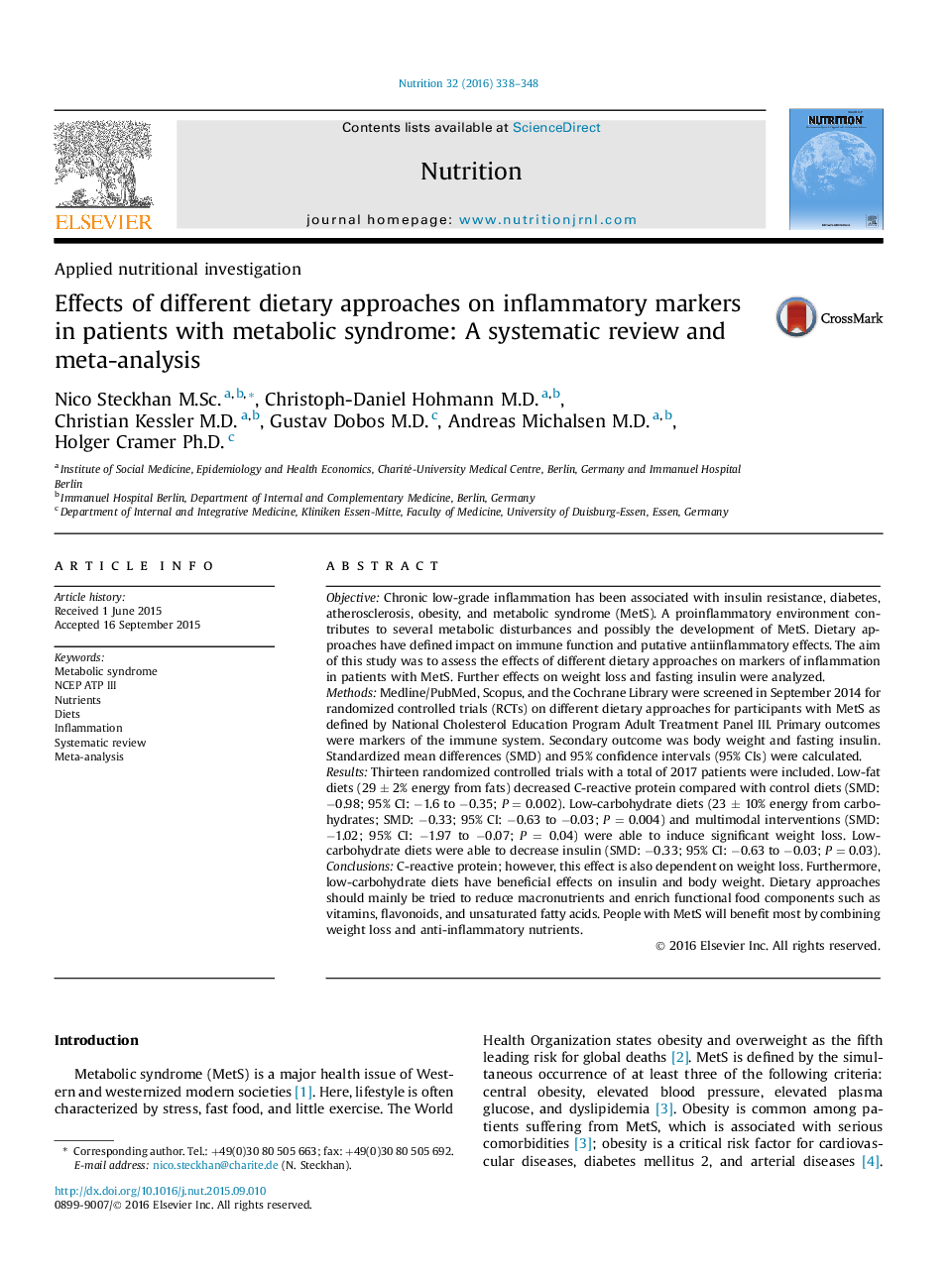| کد مقاله | کد نشریه | سال انتشار | مقاله انگلیسی | نسخه تمام متن |
|---|---|---|---|---|
| 3276166 | 1208532 | 2016 | 11 صفحه PDF | دانلود رایگان |
• Different dietary approaches have positive effect on immune markers for patients with metabolic syndrome.
• Low-fat diets reduce C-reactive protein, though this seems to be dependent on weight loss.
• Low-carbohydrate diets can be considered as additional intervention to achieve weight control.
• Reducing saturated fatty acids and enriching immunoactive biosubstances (vitamins, flavonoids, and unsaturated fatty acids) seems to be the best strategy against metabolic syndrome.
ObjectiveChronic low-grade inflammation has been associated with insulin resistance, diabetes, atherosclerosis, obesity, and metabolic syndrome (MetS). A proinflammatory environment contributes to several metabolic disturbances and possibly the development of MetS. Dietary approaches have defined impact on immune function and putative antiinflammatory effects. The aim of this study was to assess the effects of different dietary approaches on markers of inflammation in patients with MetS. Further effects on weight loss and fasting insulin were analyzed.MethodsMedline/PubMed, Scopus, and the Cochrane Library were screened in September 2014 for randomized controlled trials (RCTs) on different dietary approaches for participants with MetS as defined by National Cholesterol Education Program Adult Treatment Panel III. Primary outcomes were markers of the immune system. Secondary outcome was body weight and fasting insulin. Standardized mean differences (SMD) and 95% confidence intervals (95% CIs) were calculated.ResultsThirteen randomized controlled trials with a total of 2017 patients were included. Low-fat diets (29 ± 2% energy from fats) decreased C-reactive protein compared with control diets (SMD: −0.98; 95% CI: −1.6 to −0.35; P = 0.002). Low-carbohydrate diets (23 ± 10% energy from carbohydrates; SMD: −0.33; 95% CI: −0.63 to −0.03; P = 0.004) and multimodal interventions (SMD: −1.02; 95% CI: −1.97 to −0.07; P = 0.04) were able to induce significant weight loss. Low-carbohydrate diets were able to decrease insulin (SMD: −0.33; 95% CI: −0.63 to −0.03; P = 0.03).ConclusionsC-reactive protein; however, this effect is also dependent on weight loss. Furthermore, low-carbohydrate diets have beneficial effects on insulin and body weight. Dietary approaches should mainly be tried to reduce macronutrients and enrich functional food components such as vitamins, flavonoids, and unsaturated fatty acids. People with MetS will benefit most by combining weight loss and anti-inflammatory nutrients.
Journal: Nutrition - Volume 32, Issue 3, March 2016, Pages 338–348
